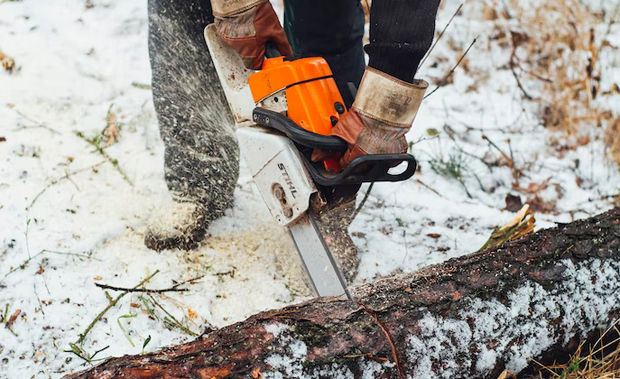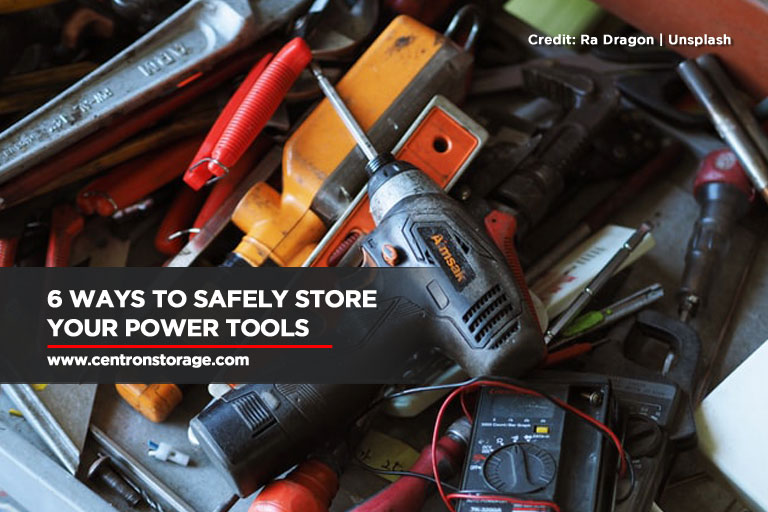Can power tools freeze? If you’ve ever wondered whether your trusty power tools can withstand the frigid temperatures of winter, you’re in the right place! We’re here to shed some light on this chilly topic and provide you with all the essential information you need to know. So, grab a cup of hot cocoa and let’s dive in!
Now, imagine this scenario: you wake up to a winter wonderland outside, and you eagerly head out to do some work with your power tools. But wait, are they affected by freezing temperatures? Will they still function as usual, or should you be concerned? Well, worry not, young DIY enthusiast, because we’re about to demystify the freezing power tool conundrum.
In this comprehensive guide, we’ll explore whether power tools can freeze, how freezing temperatures impact their performance, and the best practices to keep them in top shape during the winter months. So, whether you’re a seasoned tradesperson or just getting started with your DIY journey, we’ve got you covered. Let’s get started and learn all about the freezing adventures of power tools!
Power tools are susceptible to freezing temperatures, which can cause damage to their internal components. Freezing can lead to cracked casings, malfunctioning batteries, and reduced performance. To prevent this, it’s important to store power tools in a climate-controlled area, preferably above freezing temperatures. If you need to use power tools in cold weather, allow them to warm up gradually indoors before using them. Taking these precautions will help extend the lifespan of your power tools.

Can Power Tools Freeze? The Impact of Cold Temperatures on Your Tools
Power tools are essential for various DIY projects and professional work. However, as the seasons change and temperatures drop, one question arises: can power tools freeze? In this article, we will explore the impact of cold temperatures on power tools, discuss potential risks, and provide tips for protecting your tools from freezing.
Understanding the Effects of Freezing Temperatures
When power tools are exposed to freezing temperatures, several potential issues can arise. First and foremost, the moisture present in the tool can freeze, leading to various problems. The freezing of moisture can cause parts to expand, contracts, or even crack, resulting in damage to the internal components of the tool. Additionally, power tool batteries may experience reduced performance or even stop working altogether in cold conditions. It is crucial to understand these effects to prevent damage and ensure the longevity of your tools.
1. Risks Associated with Freezing Power Tools
The first risk associated with freezing power tools is the potential damage to the tool’s internal components. When moisture freezes within the tool, it can lead to cracked or damaged parts, affecting the overall performance and durability of the tool. Additionally, power tool batteries are susceptible to the cold, which can cause reduced runtime or complete failure of the battery. The freezing temperatures can also impact the lubrication of the tool, leading to increased friction and decreased efficiency.
To mitigate these risks, it is essential to take proper precautions when storing and using power tools in cold temperatures. Following best practices can help prevent damage and ensure the optimal functioning of your tools, even in freezing conditions.
2. Protecting Your Power Tools from Freezing Temperatures
There are several steps you can take to protect your power tools from freezing temperatures and minimize the potential risks associated with colder conditions.
1. Storage: When not in use, store your power tools in a climate-controlled area, such as a garage or workshop. Avoid leaving them in outdoor sheds or exposed areas where they can be directly affected by freezing temperatures.
2. Insulation: Insulate your power tool storage area or container using insulating materials like foam or blankets. This helps maintain a stable temperature, reducing the chances of freezing.
3. Battery Care: In cold weather, store power tool batteries in a warm, dry location. Extreme cold can reduce battery performance, so it is essential to keep them at an optimal temperature before and during use.
4. Lubrication: Lubricate your power tools with cold-weather lubricants or oils that are designed to withstand freezing temperatures. This will help prevent friction and ensure smooth operation, even in colder conditions.
3. The Importance of Regular Maintenance
Regular maintenance is crucial to keeping your power tools in optimal condition, especially when exposed to freezing temperatures. Here are a few maintenance tips to keep in mind:
1. Cleanliness: Regularly clean your power tools, removing any debris or moisture that may have accumulated. This helps prevent rust or corrosion, which can be exacerbated by freezing temperatures.
2. Inspection: Check your power tools for any signs of damage or wear before and after each use. Address any issues promptly to prevent further damage, especially in cold weather.
3. Battery Maintenance: Follow the manufacturer’s guidelines for battery maintenance, including proper charging and storage practices. Maintaining the batteries at their optimal performance levels will help minimize the impact of freezing temperatures.
Conclusion
While power tools can freeze and be adversely affected by cold temperatures, taking the necessary precautions and incorporating regular maintenance practices can help protect your tools and extend their lifespan. By storing tools correctly, insulating their storage areas, caring for power tool batteries, using appropriate lubrication, and practicing regular maintenance, you can prevent damage and ensure that your power tools continue to perform optimally, even in freezing conditions.
Key Takeaways: Can Power Tools Freeze?
- Power tools can freeze if exposed to extremely cold temperatures.
- Freezing can cause damage to the internal components of power tools.
- It is important to store power tools in a dry and temperature-controlled environment to prevent freezing.
- Using antifreeze products or lubricants specifically designed for cold weather can help protect power tools from freezing.
- Regular maintenance and inspections can help identify any potential issues related to freezing and prevent further damage.
Frequently Asked Questions
Here, you’ll find answers to common questions about power tools and freezing temperatures.
What happens if power tools freeze?
When power tools freeze, it can lead to various issues. The most common problem is frozen moisture within the tool, which can cause damage to internal components. Freezing temperatures can also affect the lubrication of moving parts, resulting in decreased performance or even complete malfunction of the tool.
To prevent damage, it’s crucial to store power tools properly in a climate-controlled environment, away from extreme cold temperatures. If you suspect your power tool has been exposed to freezing temperatures, allow it to reach room temperature before use and inspect it for any signs of damage.
Can power tools still work after being frozen?
In some cases, power tools may still work after being frozen. However, it’s important to thoroughly inspect the tool before use. Check for any visible damage, such as cracks or bends, and make sure all moving parts are functioning properly. If you notice any abnormalities or suspect internal damage, it’s best to consult a professional for further assessment or repair.
Additionally, take note that the performance and reliability of a power tool that has been frozen may be compromised. It’s advisable to be cautious and monitor its functionality closely during and after use.
How can I prevent power tools from freezing?
The best way to prevent power tools from freezing is to store them in a temperature-controlled environment. Ideally, keep them in a dry and insulated space where temperatures do not drop below freezing. If you don’t have access to a climate-controlled area, consider using a heater or insulation blankets to protect your tools from extreme cold.
When transporting power tools during winter, try to keep them inside a warm vehicle or protected with insulated cases or bags to shield them from freezing temperatures. Taking these preventive measures can help prolong the lifespan of your tools and maintain their optimal performance.
Are there any special considerations for battery-powered tools in freezing temperatures?
Yes, freezing temperatures can affect the performance of battery-powered tools. Cold weather reduces the battery’s capacity and can cause it to drain more quickly than usual. In extreme cases, batteries can even freeze, potentially damaging the cells and rendering them unusable.
To minimize the impact of freezing temperatures on battery-powered tools, keep the batteries warm. Avoid leaving them in cold environments for an extended period. If necessary, store spare batteries in a warm location and swap them out as needed. It’s also a good idea to fully charge the batteries before using them in cold conditions, as this can help maintain their performance.
What should I do if I accidentally leave my power tools outside in freezing temperatures?
If you accidentally leave your power tools outside in freezing temperatures, it’s crucial to take immediate action. Bring the tools inside and allow them to gradually reach room temperature before attempting to use them. During this time, inspect the tools for any signs of damage, such as cracks, or any noticeable changes in performance.
If you notice any abnormalities or suspect damage, it’s advisable to consult a professional for further assessment or repair. Taking prompt action and addressing any potential issues can help prevent further damage and extend the lifespan of your power tools.

Lithium Ion Battery Freeze – Below Zero What Happens?
Summary
Power tools can freeze in cold temperatures, causing damage to their internal components. Freezing can occur when water or moisture is present in the tool and freezes when exposed to low temperatures. This can lead to issues such as rust, cracked plastic, and malfunctioning parts.
To prevent power tools from freezing, it is important to store them in a dry and insulated area when not in use. Additionally, using a tool that is specifically designed for cold weather or applying a protective coating can help prevent moisture from infiltrating the tool and causing damage. Regular maintenance and cleaning can also help prolong the lifespan of power tools and prevent freezing-related issues. By taking these precautions, you can ensure that your power tools are always ready for use, even in colder climates.
